 EYE OF THE BEHOLDER poems
EYE OF THE BEHOLDER poems
LUCI SHAW
2018 First Printing
Eye of the Beholder:Poems Copyright 2018 Luci Shaw ISBN 978-1-64060-085-0 The Paraclete Press name and logo (dove on cross) are trademarks of Paraclete Press, Inc. Library of Congress Cataloging-in-Publication Data Names: Shaw, Luci, author. Title: Eye of the beholder / Luci Shaw. Description: Brewster, MA : Paraclete Press, [2018] | Series: Paraclete poetry Identifiers: LCCN 2018031364 | ISBN 9781640600850 (paperback) Subjects: | BISAC: RELIGION / Christianity / Literature & the Arts. | POETRY / Inspirational & Religious. Classification: LCC PS3569.H384 A6 2018 | DDC 811/.54dc23 LC record available at https://lccn.loc.gov/2018031364 10 9 8 7 6 5 4 3 2 1 All rights reserved.
No portion of this book may be reproduced, stored in an electronic retrieval system, or transmitted in any form or by any meanselectronic, mechanical, photocopy, recording, or any otherexcept for brief quotations in printed reviews, without the prior permission of the publisher. Published by Paraclete Press Brewster, Massachusetts www.paracletepress.com Printed in the United States of America
to Jeanne Murray Walker,
companion in writing and lifeParaclete Poetry Series Editor,
Mark S. Burrows CONTENTS INTRODUCTION: PROPHETS & POETS W ith feet in two worldsthe earth-bound reality and the unseen but utterly real transcendent sphereBiblical prophets were specially chosen individuals. As commandeered by a divine call, they spoke to the people from God, and to God from the people, inhabiting the tricky threshold between heaven and earth. Their calling was to hear divine words, see divine visions, and then speak the prophetic message to their listeners, linking the transcendent and immanent. As a poet I have felt drawn to a somewhat similar task.
Having ideas that seem to come from beyond me, and writing about them, seeing pictures in my head, images and words to describe them, have haunted me from early childhood, encouraged by my writer father. As an adult I pray and dream that the words and ideas given me might say something true and meaningful to a reader, a listener. Presented with visions, permitted to see what others could not, prophets in Scripture were called to proclaim in human language what was un-seeable to their audience. Some of the most lasting and vivid poetry in Scripture came from the mouths of these prophets. Throughout biblical history there were many of them, nearly always sent by God to speak words of correction, warning or foretelling. Ezekiel, Jeremiah, Daniel, and Isaiah were known as the Major Prophets because of the length, complexity, and duration of their prophecies, containing as they did image after image of blazing intensity.
The so-called Minor Prophets also had this gift of perception, these glimpses of unseen reality, to be conveyed in words and actions. Habakkuks vision was called a burden, something so heavy with portent that expressing it, living it out, was a divine message on which the welfare of Gods people depended. Being called as a prophet was not an easy assignment. It set the seer apart from and often against those he was required to challenge. Presented in the language of the people, using earthy metaphors to express divine realities, many visions were written in the form of Hebraic poetry, with brilliant imagery reflecting their own settings and cultures. The young boy Samuel, with his responsive spirit, woken from sleep three times by God, was the one chosen to call out the high priest Eli, who had grown old and tired and had forgotten to listen and obey, to the detriment of the people he was meant to lead.
The proverb says it: Where there is no vision, the people perish. Through Samuel, the vision came alive and real in the lives of the people. Perhaps this is where I find myself, like young Samuel responding as best I can to the voice, listening for messages clear enough to transmit, recording them in their primitive forms in a notebook, then in my computer where they call for revision, revision, revision. I read them aloud to catch the rhythms I hear in my head. I have done this all my life. It is my greatest joy, for which I give glory to the Great Poet who created me as part of his universe, a shard of his seventh day.
These biblical prophecies bristle with colorful imagery reflecting the settings and cultures of the hearers. Much of it follows the forms of Hebraic poetry in couplets that reiterate or contrast. Take Isaiah, whose words describe what he saw of the Mighty One: I saw the Lord. He was high and lifted up and his throne filled the temple. The exalted vision that follows is pure poetry. (Somehow it reaches me most powerfully when expressed in the King James Version with its grand sonorities.) Many of the prophecies were more earthbound than Isaiahs.
Think of Jeremiahs dream of a basket of rotten figs, inedible like the people whom he was castigating. Think of Ezekiel, who literally lived his metaphor, required by God to lie, bound with cords for months, to illustrate the bondage of the people of Judah. The prophetic vision was often heavy, a prediction of imminent destruction and calamity. In Jeremiahs time, his message of doom so angered the people that they put him in a deep, muddy pit to think it over. At Sauls conversion on the Damascus Road, God flung him from his horse and claimed him in unmistakable terms. The vision was blinding and unspeakable, the life-change of the man who became the apostle Paul dramatic.
In the Revelation John the Divine, exiled on Patmos, saw the blazing image of One like the Son of Man who transmitted to him prophetic messages for the Christian believers in seven communities of the early church. He was told, Write what you see. Listen to the wind-words, is how a contemporary translation puts it. With its brilliant and mystical metaphors, Johns vision continues with some of the most arresting and high-flown language and imagery in the Bible. It is both daunting and beatific. In our own day, in a mechanistic society trammeled with political conflicts and a waning consciousness of the sublime, I believe poetsand particularly poets of faithhave a similar mandate.
I suggest that writers who cultivate the gift of perception and awareness will make connections with what they see in imagination and how they write about it. It is a kind of translation in the hope that something of what they see and hear will open a fresh understanding, will somehow illuminate their readers. Its like taking someone by the arm and saying, Hey. Look this way! Have you noticed ? Can you see what I am seeing? It doesnt have to be earth-shaking or exalted or profound, but it must speak into another human mind, building a bridge from writer to reader. Its as if a poem hasnt fulfilled its purpose until it makes a connection in someone elses imagination, and enlarges, by increments, that companion mind. We earth-bound mortals, with a cultivated consciousness, may have access to possibilities, or invisible realities.
We have a connection with the seen and unseen by way of spiritual insight and our words suggest that, like John the Revelator, we write what we see. As we live in a creative world of beauty and terror, delight and disruption, we are called to notice the contrasts and linkages that fascinate and compel us into truth-telling and metaphorical language. As it was for Habakkuk, burdened with a prophetic vision (or a compelling image for a poem), our insights and language may burden us with something not to be gainsaid. Not everyone in Scripture was called to be a prophet, not even the righteous. Not every human being will see reality through the eyes of imagination and vision. Yet in our own time we may also have access to the transcendent as our imaginations receive pictures in our heads.
Next page
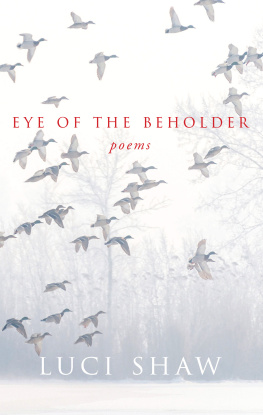
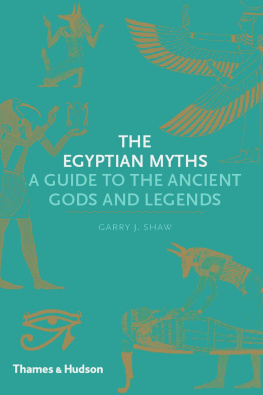
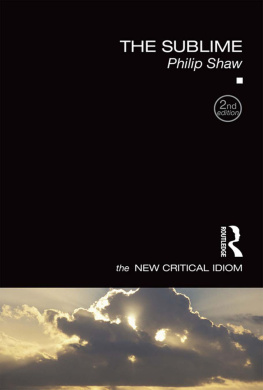
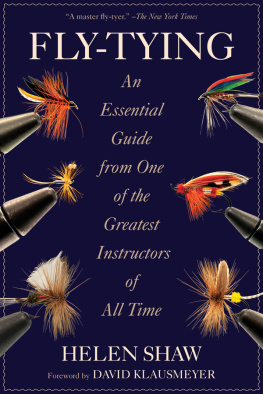
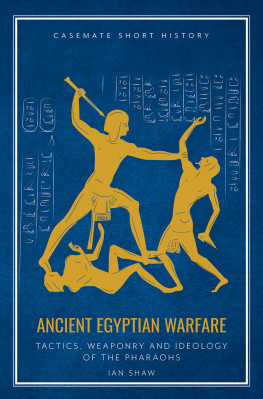

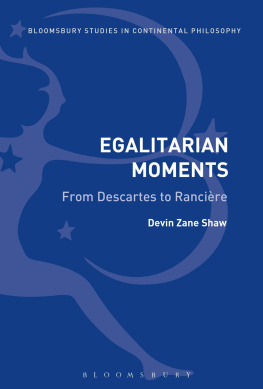
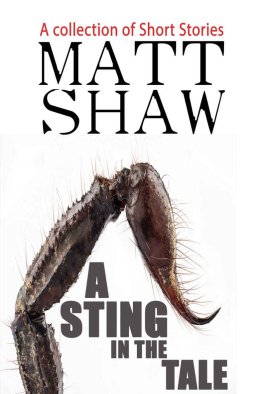

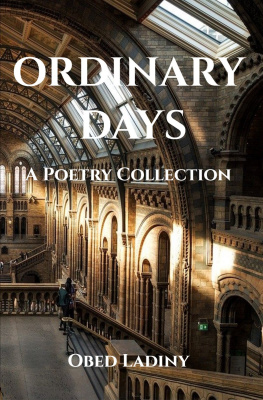


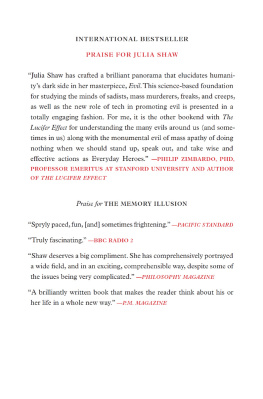
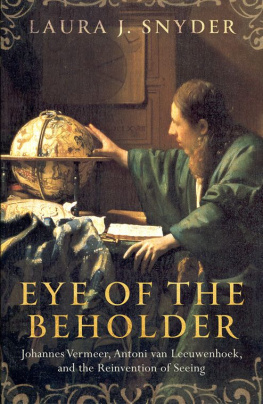

 EYE OF THE BEHOLDER poems
EYE OF THE BEHOLDER poems


